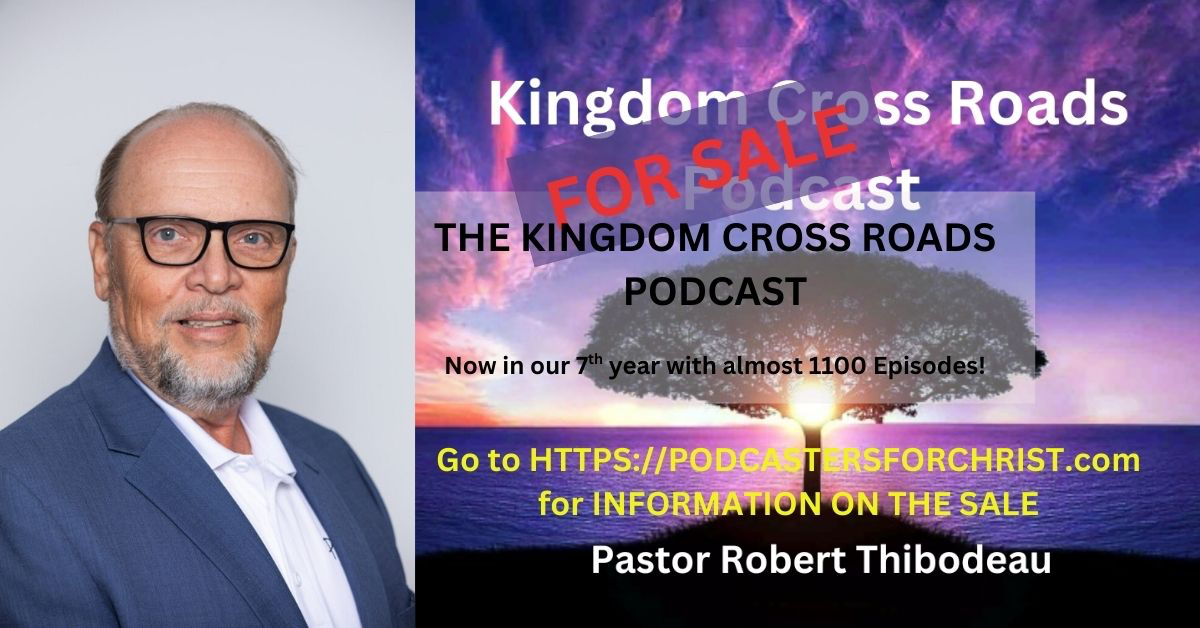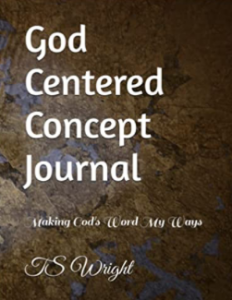Episode 1319
The Third Age of the Church – TS Wright pt 2
The Third Age of the Church
TS Wright pt 2
We have, as our guest today, back on the program today, Scott Wright, or TS Wright is his pen name for his books. And, and he is the author and presenter of the God-Centered Concept Series. And, and you know, folks, if, if you haven’t been listening to our prior episodes, you need to go back and, and go to the archives, type in TS Wright, and listen to those episodes because it’s been a blessed time as he’s been sharing information about the seven church agents, the end days, the Book of Revelation. And folks, last time we talked about the end of the first church age and, and then the second, uh, church age. And today we’re going into the third church age. Praise God. And the information that Scott has accumulated in his studies on this, I mean, there’s no other way to put it other than saying it is a huge blessing and giving you wisdom and understanding on the end times.
And it’s going to culminate when we get to the last part, which is where we are at right now on the timeline. Amen. But in order to grasp that full understanding, you have to understand what the Lord has been doing all these other years since he went to heaven. And to get there, we first have to find out all the different ages, and there’s just no other thing to do except say, help me welcome to the program Scott Wright. Scott, praise God for coming back on the program today!
So one of the things to understand is that when we go back and look at the first age of the church, it was really about the process of removing the Jewish influence.
The second age of the church is now about removing the Roman influence, trying to stop Christianity. And in both cases, what is interesting is through these persecutions, it actually helps spread the church because people would flee and go to other areas.
It is the end of the second age of the church. And what is really the start of the third age of the church is Constantine being baptized. Because that is that moment when the person who has the most power on earth, other than God himself, takes Christianity and says, “I’m a part of this.” That’s when it happens. Because even after the edict of Milan, there was still some persecution going on. There was still lots of turmoil. It just was starting to die off. And it won’t be quite as intense as it was, obviously.
They had not totally embraced what the sacred writings were going to be, which we will eventually call the New Testament.
But in this third age, this is kind of where everything starts to get structured. You know, those things had kind of been there but not formally. And there was, again, there was too many schisms, there was too many different ideas. And all of that starts to think of it as a funneling process. It all starts to get funneled in. Athanasius will be a very prominent figure during this time. This guy is going to be exiled a lot.
But what he would do a lot of times, not every time, but he would retreat to the Desert Fathers. And he would fast and pray with these guys. And I sometimes wonder if a lot of what his theology is that he shares with people in his writings and all this stuff that really takes hold in Christianity later on and becomes a lot of, of our theological basis. You can go back and read his writings. I think it comes from these desert fathers, him spending that time with them and that seclusion. So in many ways, his exile time was probably more valuable to us than his time actually sitting in the seat of Archbishop.
That monastery way of life is outlasted and, and think about how much theology has come out of that time which we embrace today. Even whether you are a Catholic, protestant, whatever, you are embracing a lot of that theology, because back then it was just one church. So this third age of the church is from that period of time.
And then the actual end of the Third Church Age is when King Henry VII establishes the Anglican church. That is the actual trigger that signifies the end. And we will talk more about that next time.
Tell us about your book, “God-Centered Concept Journal: Making God’s Words My Ways.”
Before we close, share again about your podcast, “God Center Concept Podcast.”
CONTACT INFORMATION:
Email: gccgodcenteredconcept2038@gmail.com
Book: “God Centered Concept Journal: Making God’s Word My Ways.” - on Amazon
Podcast: The God Centered Concept
Mentioned in this episode:
Join FaithCaster Academy
Use coupon code KCR at checkout and receive one 40% off your membership!




